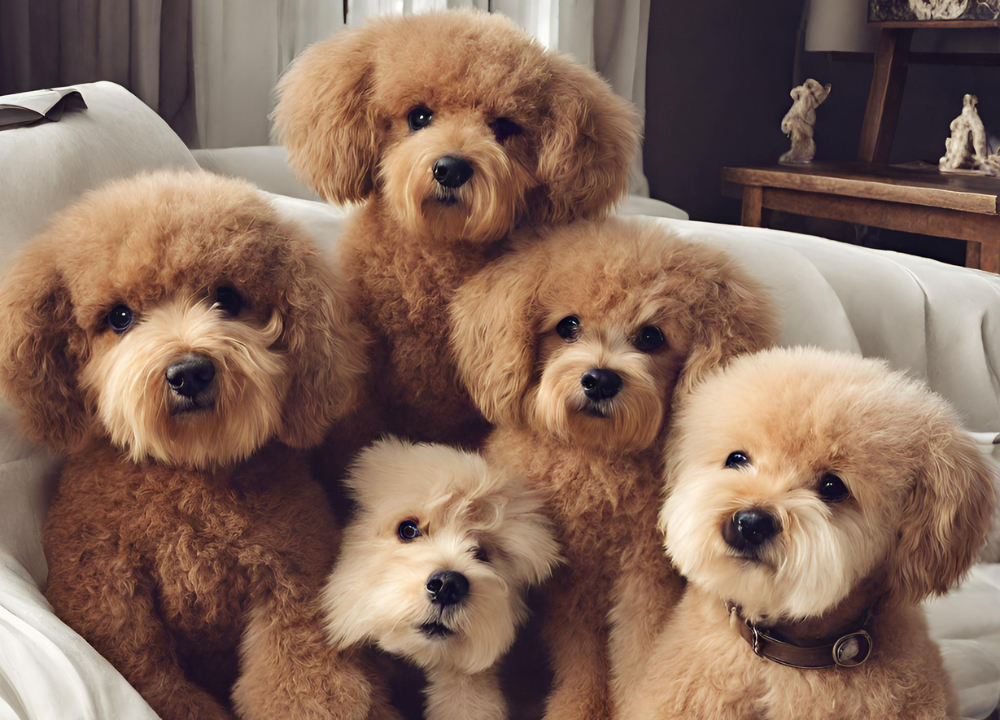Are you looking for a furry companion that will instantly melt your heart? Well, look no further because we have got you covered! In this blog, we will take you on a delightful journey to discover the top 17 teddy bear dogs that will bring joy, love, and happiness into your life.
Imagine coming home to a fluffy ball of cuteness that is not only adorable but also incredibly affectionate. Teddy bear dogs, also known as designer breed dogs, are a delightful mix of breeds that are specifically bred to capture the irresistible charm of a teddy bear. These dogs are perfect for those who crave the love and companionship of a stuffed animal but also want the energy and playfulness of a real pet.
In this blog, we will delve into the characteristics, temperaments, and unique features of these lovable canines. From their adorable appearance to their loyalty and adaptability, we will discuss everything you need to know about these enchanting creatures. So, get ready to be captivated by their charm and find your new best friend!
Let’s dive in and explore the enchanting world of teddy bear dogs.
What are Teddy Bear Dogs?
Teddy bear dogs are a popular hybrid breed that captures the heart of dog lovers everywhere. These adorable dogs are bred to resemble the beloved stuffed animal, with their soft, fluffy coats and endearing facial features. They are a cross between two purebred dog breeds, typically the Bichon Frise and Shih Tzu, although other breeds like the Yorkshire Terrier, Lhasa Apso, and Toy Poodle are also sometimes used.
The Anatomy of a Teddy Bear Dog
A teddy bear dog’s most distinguishing feature is its irresistibly cute appearance. They have a compact body, round head, and big, expressive eyes that make them look like a living teddy bear. Their coats are usually long and fluffy, similar to that of a stuffed animal, and come in a variety of colors including white, cream, brown, and black.
The Temperament and Personality of Teddy Bear Dogs
Beyond their adorable appearance, teddy bear dogs are known for their friendly and affectionate nature. They are typically gentle, easygoing, and love to be around their human companions. Teddy bear dogs are great for families with children, as they are usually patient and tolerant, making them a good match for older children.
The Low-Allergen Benefits of Teddy Bear Dogs
One of the reasons why teddy bear dogs have gained so much popularity is their hypoallergenic coat. While no dog is completely hypoallergenic, teddy bear dogs have low shedding coats that produce less dander, making them a better choice for individuals with allergies.
Health Considerations for Teddy Bear Dogs
Like any dog breed, teddy bear dogs are prone to certain health issues. For example, patellar luxation, a condition where the kneecap dislocates, can be a concern in smaller teddy bear dog breeds. It’s important to choose a reputable breeder and schedule regular check-ups with a veterinarian to ensure the overall health and well-being of your teddy bear dog.
💡 key Takeaway: Teddy bear dogs are adorable hybrid breeds that resemble teddy bears and are known for their friendly nature, low-allergen coats, and overall cuteness. However, it’s important to consider health considerations and choose a reputable breeder when considering adding a teddy bear dog to your family.
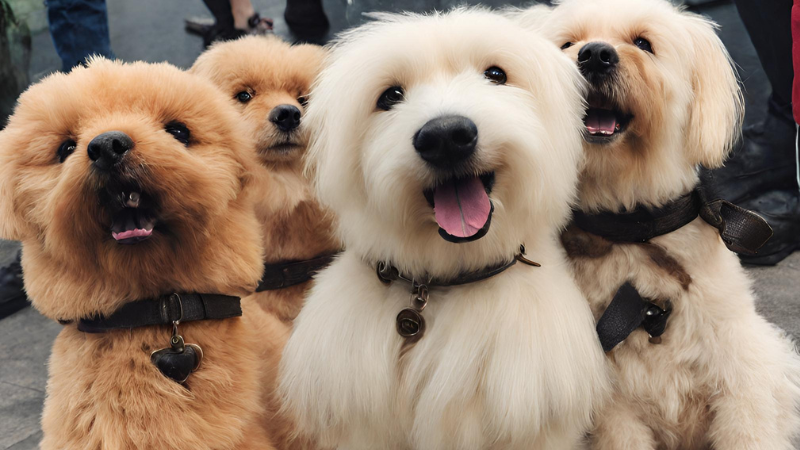
The Allure of Teddy Bear Dogs
If you’re in search of the perfect furry friend that’s both adorable and affectionate, look no further than teddy bear dogs. These irresistible pups are a popular choice among dog lovers for their striking resemblance to everyone’s favorite childhood toy.
Why are teddy bear dogs so alluring? Let’s explore:
The Teddy Bear Look:
With their fluffy coats, large round eyes, and cute button noses, teddy bear dogs epitomize cuteness overload. They have an irresistible charm that can melt the hearts of even the sternest dog person.
Whether they have a Bichon Frise, Shih Tzu, Yorkshire Terrier, or Lhasa Apso lineage, these breeds contribute to the teddy bear appearance.
Hybrid Breeds with the Best Traits:
Teddy bear dogs are not purebred, but instead, they are the result of carefully designed crosses between different breeds. This hybrid breeding aims to combine the best qualities of two or more breeds while minimizing potential health issues.
One of the most popular hybrid breeds is the Bichon Frise and Shih Tzu mix, which captures the essence of a teddy bear in both looks and temperament.
Size Does Matter:
Teddy bear dogs come in various sizes, making them suitable for different living situations. From small and portable to medium-sized cuddle buddies, there’s a teddy bear dog to match your lifestyle.
Toy Poodles, for example, are often incorporated into teddy bear crosses to create smaller-sized teddy bear dogs. This makes them a great option for those living in apartments or with limited space.
Low-Allergen Coats:
For individuals with allergies, teddy bear dogs are a blessing in disguise. Many of these breeds have hypoallergenic qualities, meaning they produce fewer allergens and are less likely to trigger allergic reactions.
Breeds like the Bichon Frise and Lhasa Apso have coats that are more hypoallergenic compared to others, allowing dog lovers with sensitivities to enjoy the companionship of a teddy bear dog.
Big Personalities:
Despite their small size, teddy bear dogs are known for their big personalities. They are often described as playful, affectionate, and friendly, making them wonderful companions for families, individuals, and even older children.
Bichon Frise: The Perfect Teddy Bear Dog
If you’re in search of the ultimate teddy bear dog, look no further than the Bichon Frise. Known for their resemblance to a cuddly stuffed animal, Bichon Frises are sure to melt your heart with their adorable appearance and charming personality. Let’s dive into what makes them the perfect teddy bear dog.
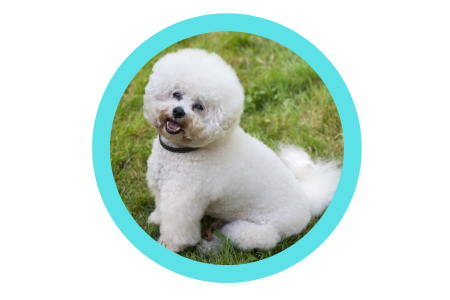
Appearance:
1. Teddy Bear Look: With their fluffy white coats, round faces, and expressive eyes, Bichon Frises truly embody the teddy bear look. Their soft and velvety fur adds to their huggable appeal, making them irresistible to both young and old.
2. Various Colors: While white is the most common color for Bichon Frises, they can also come in shades of cream, apricot, or gray. This wide range of colors offers a variety of choices to dog lovers who have specific preferences.
Temperament:
1. Big Personality: Despite their small size, Bichon Frises have a big personality. They are known for their playful, friendly, and outgoing nature. These dogs thrive in social settings and are always eager to make new friends, whether they be human or furry.
2. Great with Children: Bichon Frises are well-suited for families with older children. They are gentle, patient, and known for their tolerance. Whether it’s playtime or nap time, these dogs enjoy being around kids and make excellent companions for them.
Health and Maintenance:
1. Low-Allergen Coat: If you or someone in your family suffers from allergies, the Bichon Frise may be the ideal choice. Their hypoallergenic coat produces fewer allergens, making them more compatible with individuals who are sensitive to pet dander.
2. Patellar Luxation: Like any other breed, Bichon Frises can be prone to certain health issues. One common concern is patellar luxation, a condition where the kneecap slips out of place. Regular vet check-ups and proper care can help prevent or manage this condition.
Training and Exercise:
1. Intelligent and Willing to Please: Bichon Frises are intelligent dogs who love to please their owners. They respond well to positive reinforcement-based training and enjoy learning new tricks or commands. Consistency, patience, and rewards are key to successfully training a Bichon Frise.
Shih Tzu: A Delightful Teddy Bear Companion
Shih Tzus, with their adorable appearance and charming personality, are the epitome of a teddy bear dog. Originating from China, these little companions have been winning hearts for centuries. Let’s explore what makes Shih Tzus the perfect teddy bear dogs.
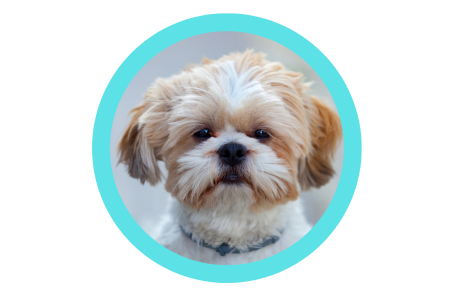
Description and Physical Characteristics:
Shih Tzus are known for their stunning, fluffy coats that resemble a stuffed animal. They have a compact and sturdy build, with a height ranging between 8 to 11 inches (20 to 28 cm) and weighing around 9 to 16 pounds (4 to 7 kg). Their expressive, round eyes and signature underbite give them the endearing teddy bear look that melts hearts.
Temperament and Personality:
Shih Tzus are renowned for their affectionate and friendly nature, making them excellent companions for families and individuals alike. These dogs have a gentle temperament and love being the center of attention. They thrive on human companionship and are often described as loyal and devoted pets. Their playful nature and love for cuddles contribute to their teddy bear-like qualities.
Compatibility with Children and Other Pets:
Shih Tzus are generally well-suited to families with older children or households with other pets. Their small size and gentle disposition make them a great fit for families who prefer a smaller dog breed. However, it’s important to supervise interactions between Shih Tzus and younger children due to their delicate stature.
Exercise and Grooming Needs:
While Shih Tzus don’t require extensive exercise, they still enjoy daily walks or playtime to keep them physically and mentally stimulated. Their long, silky coats require regular grooming to prevent matting and tangling. Weekly brushing, occasional professional grooming, and regular dental care are essential for maintaining their luxurious teddy bear-like appearance.
Health Considerations:
Like any dog breed, Shih Tzus may be prone to certain health issues. Common concerns for this breed include patellar luxation (knee joint problem) and eye conditions such as progressive retinal atrophy (PRA) and dry eye syndrome. Regular veterinary check-ups and a balanced diet are crucial for ensuring their overall well-being.
The Teddy Bear Dog Breed: What You Need to Know
The Teddy Bear dog breed is a popular choice among dog enthusiasts due to its adorable appearance and affectionate nature. If you’re considering getting a Teddy Bear dog, there are a few key things that you should know. Let’s dive into the details:
What is a Teddy Bear Dog?
A Teddy Bear dog is not a specific breed but rather a term used to describe a certain type of dog that resembles a cuddly teddy bear. These dogs are typically a crossbreed between two purebred dogs, such as a Bichon Frise and a Shih Tzu.
The aim of breeding Teddy Bear dogs is to create a small, hypoallergenic, and companionable pet that combines the appealing qualities of different breeds.
Characteristics and Appearance:
Teddy Bear dogs are known for their fluffy coats, round faces, and expressive eyes that give them their teddy bear-like appearance.
They come in a variety of colors, including white, cream, brown, and black.
These dogs have a small size, typically weighing between 8 to 20 pounds, making them suitable for apartment living or for those who prefer a smaller dog.
Temperament and Personality:
Teddy Bear dogs are generally gentle, friendly, and affectionate. They thrive on human companionship and enjoy being around their families.
They have a playful and loving nature, making them great companions for people of all ages.
Due to their mixed breed heritage, their temperament may vary slightly. However, they are generally known for being intelligent, trainable, and adaptable.
Exercise and Grooming:
Despite their small size, Teddy Bear dogs still require regular exercise to keep them healthy and happy. Daily walks, playtime, and mental stimulation through interactive toys are essential for their wellbeing.
Their coats are typically long and low-shedding, requiring regular brushing to prevent matting and to keep their fur looking its best. Professional grooming every few months is also recommended.
Health Considerations:
Like any other breed, Teddy Bear dogs may be prone to certain health issues. Patellar luxation, a condition affecting the knee joint, is more common in smaller dog breeds and can occur in Teddy Bear dogs.
Yorkshire Terrier: A Charming Teddy Bear Look
The Yorkshire Terrier, also known as the Yorkie, is a breed that perfectly embodies the charm and appeal of a teddy bear. With their luxurious, long, and silky coats, they have a distinct appearance that is both adorable and reminiscent of a cuddly stuffed animal.
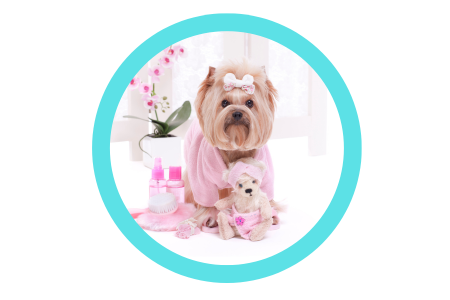
Origin and History:
The Yorkie breed originated in the 19th century in Yorkshire, England. They were initially bred as working dogs to catch small vermin in mines.
Over the years, their popularity grew, and they eventually became beloved companions and show dogs.
The Teddy Bear Look:
The Yorkshire Terrier’s most distinctive feature is its luxurious coat. Their long, straight hair cascades down to the floor, giving them a teddy bear-like appearance.
Their coat comes in a variety of colors, including golden, black and tan, blue, and silver. Each colored coat adds to their charm and uniqueness.
Size and Temperament:
Yorkshire Terriers are small in size, typically weighing between 4-7 pounds (1.8-3.2 kilograms) and standing around 6-9 inches (15-23 centimeters) tall.
Despite their small stature, they have big personalities. Yorkies are known to be confident, bold, and full of energy. They have a playful and curious nature, making them excellent companions for active individuals or families.
Health Considerations:
Like any other breed, the Yorkshire Terrier is prone to certain health issues. Some common problems associated with Yorkies include dental issues, patellar luxation (knee dislocation), and tracheal collapse.
Regular veterinary check-ups, a balanced diet, and proper dental care can help mitigate these health concerns.
Grooming and Maintenance:
Yorkies require regular grooming to maintain their beautiful coat. This includes brushing their hair daily to prevent tangles and matting.
Additionally, they may require professional grooming to keep their fur at a manageable length. Regular nail trims and dental care are also crucial aspects of their overall maintenance.
💡 key Takeaway: The Yorkshire Terrier, with its charming teddy bear look, is a small breed packed with personality. Their long, silky coats and playful nature make them a beloved choice for many dog owners looking for a loyal and adorable companion.
Toy Poodle: The Playful Teddy Bear Breed
If you’re looking for a playful and charming teddy bear dog, the Toy Poodle might just be the perfect choice. Known for their intelligence and friendly nature, Toy Poodles have captured the hearts of many dog lovers.
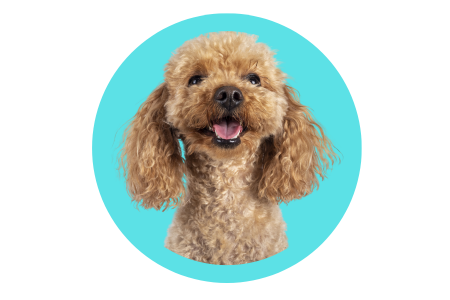
Teddy Bear Look
With their curly and fluffy coat, Toy Poodles resemble adorable teddy bears. Their soft and fluffy fur invites cuddling and makes them hard to resist. This teddy bear appearance adds an extra touch of cuteness to an already lovable breed.
Small Size, Big Personality
Despite their small size, Toy Poodles possess a larger-than-life personality. They are incredibly energetic, intelligent, and engaging, making them great companions for people of all ages. They love to entertain and be the center of attention, bringing joy and laughter to their families.
Various Colors to Choose From
Toy Poodles come in a wide range of colors, offering a selection to match your personal preferences. Whether you prefer a classic white, a sophisticated black, or a vibrant apricot, there’s a Toy Poodle color that will melt your heart.
Perfect for Allergy Sufferers
If you or your family members have allergies, a Toy Poodle might be the ideal choice. They have a low-allergen coat that sheds minimally, reducing the chances of triggering allergies. However, it’s important to note that allergies can still be triggered by dander, so it’s best to spend time with a Toy Poodle before committing to adopting one.
Athletic and Intelligent
Don’t let their small stature fool you—Toy Poodles are athletic and full of energy. They require regular exercise and mental stimulation to keep them happy and healthy. Engaging them in interactive playtime, obedience training, and puzzle toys can help channel their energy and keep their minds sharp.
Health Considerations
While Toy Poodles are generally healthy dogs, like any breed, they are prone to certain health issues. Some common conditions include patellar luxation (knee joint displacement), dental problems, and eye diseases. Regular veterinary check-ups and proper care can help prevent and manage these health concerns.
A Loving and Devoted Companion
Above all, Toy Poodles are known for their loyalty and affection towards their human families. They form strong bonds and thrive in loving environments. They are often described as intuitive and sensitive to their owner’s emotions, making them excellent emotional support.
Lhasa Apso: A Fluffy and Adorable Teddy Bear
The Lhasa Apso is a small and fluffy breed that perfectly fits the description of a Teddy Bear dog. Known for their majestic appearance and long, flowing coats, these dogs are sure to melt your heart. Let’s dive into the qualities that make the Lhasa Apso such a lovable and teddy bear-like companion.
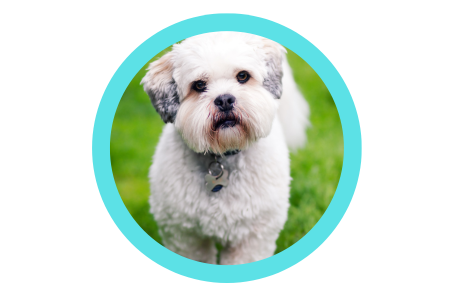
The Coat: A Huggable Fluffball
The Lhasa Apso’s coat is one of its most iconic features, resembling a fluffy teddy bear. It is long, dense, and straight, giving the dog a plush appearance.
The coat comes in various colors, including shades of gold, cream, and gray. This variety adds to the appeal of the Lhasa Apso, making it look like a real-life stuffed animal.
Size and Build: Compact and Sturdy
Lhasa Apsos are small dogs, typically weighing between 12 to 18 pounds (5.5 to 8 kilograms). Their compact size adds to their teddy bear-like charm, making them easy to cuddle and carry around.
Despite their small stature, Lhasa Apsos have a sturdy build with a strong bone structure. This gives them a confident and well-balanced appearance, resembling a plush toy that can withstand lots of hugs.
Temperament: A Devoted Companion
Lhasa Apsos have a loyal and loving nature, making them excellent companions. They bond closely with their owners and are known for their protective instincts.
Although they may look like delicate teddy bears, Lhasa Apsos have a strong personality. They are alert, independent, and can be a little reserved with strangers. This combination of qualities adds depth to their teddy bear-like persona.
Intelligence and Trainability: A Clever Cuddle Buddy
Lhasa Apsos are intelligent dogs that can quickly grasp commands and learn new tricks. This makes them trainable and eager to please their owners.
However, their independent nature can also make them a bit stubborn at times. Patient training methods and positive reinforcement work best with Lhasa Apsos, ensuring a well-behaved and enjoyable teddy bear companion.
Chow Chow: The Teddy Bear with a Lion’s Mane
The Chow Chow is a breed that truly lives up to its teddy bear appearance. With its massive, fluffy coat and distinctive lion-like mane, this dog is sure to melt your heart. Originating from China, the Chow Chow is known for its regal and dignified presence. Let’s explore more about this adorable teddy bear dog breed.
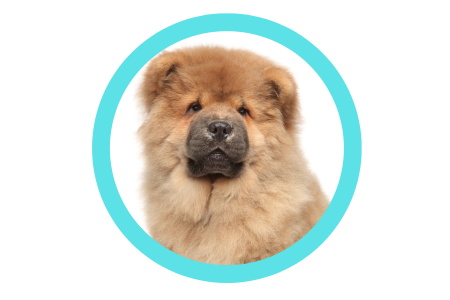
Appearance:
The Chow Chow is a medium to large-sized dog with a sturdy build. Its most striking feature is its thick and dense double coat that can come in various colors, including red, cream, cinnamon, blue, or black. The coat gives them that cuddly and plush teddy bear look.
Temperament:
While they may resemble cute stuffed animals, Chow Chows have a strong and independent personality. They are known to be aloof and reserved, often bonding closely with their own family members. Patience and consistent training are key to ensuring they develop good social skills.
Exercise and Activity:
Despite their teddy bear appearance, Chow Chows have a moderate to high energy level and require regular exercise to prevent boredom and destructive behavior. Daily walks, interactive play sessions, and mentally stimulating activities are essential to keep them happy and healthy.
Grooming:
The Chow Chow’s luxurious coat requires regular grooming to keep it looking its best. They have a thick undercoat that sheds heavily seasonally, so brushing them a few times a week is necessary to prevent matting and tangling. Professional grooming may be required for more extensive coat maintenance.
Health Concerns:
As with any breed of dog, Chow Chows are prone to certain health issues. One of the most common concerns is patellar luxation, a condition where the kneecap slips out of place. Regular vet check-ups can help catch and address any potential health problems early on.
Training and Socialization:
Chow Chows are intelligent dogs but can be stubborn at times. Early and consistent training is crucial to help them become well-behaved companions. Proper socialization from a young age is also important to ensure they are comfortable around other animals and people.
Ideal Home:
Due to their independent nature and unique grooming needs, Chow Chows are well-suited for experienced dog owners who can provide them with the care and attention they require. They thrive in homes with a calm and stable environment, away from too much noise and chaos.
Golden Retriever: A Teddy Bear with a Heart of Gold
Golden Retrievers are well-known for their friendly and affectionate nature. They are often referred to as “teddy bears” due to their cuddly appearance and warm personalities. Here, we will explore why Golden Retrievers are considered one of the top teddy bear dog breeds, and why they capture the hearts of dog lovers worldwide.

The Perfect Blend of Teddy Bear Look and Temperament
With their fluffy coats and expressive eyes, Golden Retrievers possess all the physical qualities of a teddy bear. Their soft, golden fur and adorable face make them irresistible to both children and adults alike.
Beyond their charming appearance, Golden Retrievers have a heartwarming temperament. They are known for being gentle, loyal, and eager to please. These traits make them wonderful companions and perfect candidates for a teddy bear dog.
Affectionate and Family-Oriented
Golden Retrievers are renowned for their loving and friendly nature. They thrive on human companionship and are happiest when surrounded by their loved ones. Their affectionate demeanor makes them great family dogs, especially for households with children.
Their patient and tolerant nature also makes them excellent with other pets, making them a wonderful addition to multi-pet households.
Intelligent and Easy to Train
Golden Retrievers are highly intelligent dogs. They are quick learners and excel in obedience training. Their eagerness to please their owners makes training a joy and allows them to quickly grasp commands and tricks.
Their intelligence also extends to their ability to adapt to different environments and situations, making them versatile and well-suited for various living arrangements.
Energetic and Playful
Golden Retrievers have a natural zest for life and a boundless amount of energy. They require regular exercise and mental stimulation to keep them happy and healthy.
Their playful and active nature makes them excellent companions for those who enjoy outdoor activities, such as hiking or playtime in the park. They are always up for a game of fetch or a refreshing swim in the water.
Loyalty and Protective Instincts
Golden Retrievers are known for their loyalty towards their owners. They form strong bonds and will go to great lengths to protect their loved ones.
Health Issues in Teddy Bear Dogs: What to Watch Out For
When it comes to teddy bear dogs, their adorable appearance and lovable nature are undoubtedly captivating. However, like any other dog breed, teddy bear dogs are prone to certain health issues that potential owners should be aware of. By understanding these health concerns, you can ensure that your furry friend lives a happy and healthy life.
Patellar Luxation:
- This condition occurs when the kneecap (patella) slips out of its normal position.
- Signs include limping, difficulty walking, and occasional lameness.
- Regular exercise and maintaining a healthy weight can help prevent this condition.
Respiratory Problems:
Due to their small size and short snouts, some teddy bear dogs may experience respiratory issues such as snoring, wheezing, or difficulty breathing.
Avoid strenuous exercise in extreme temperatures and provide a well-ventilated living environment to alleviate these problems.
Allergies:
Some teddy bear dogs may have allergies, which can result in skin irritations, itching, and excessive scratching.
Regular grooming, using hypoallergenic products, and keeping their living space clean can minimize allergic reactions.
Dental Problems:
Teddy bear dogs, particularly those with a short muzzle, are more prone to dental issues.
Regular dental care, including brushing their teeth and providing dental chews or toys, can help maintain good oral health.
Eye Conditions:
Certain teddy bear dogs may be susceptible to eye problems such as cataracts, dry eye, or eye infections.
Regular visits to the veterinarian and keeping their eyes clean can help detect and prevent these conditions.
Heart Conditions:
Some teddy bear dogs, especially those with a predisposition to certain heart diseases, may develop heart conditions over time.
Regular check-ups and a healthy diet can contribute to maintaining good heart health.
It is important to note that not every teddy bear dog will experience these health issues, and proper care can significantly reduce the risk. Regular veterinary visits, a nutritious diet, exercise, and a loving environment all play essential roles in ensuring the well-being of your teddy bear companion.
💡 key Takeaway: Understanding the potential health issues in teddy bear dogs can empower owners to take proactive steps to care for and maintain the optimal health of their furry friends.
Small Size, Big Personality: Teddy Bear Dogs for Apartment Living
When it comes to choosing a furry companion for apartment living, teddy bear dogs are an excellent choice. These adorable mixed breed dogs are known for their small size and big personalities, making them a perfect fit for those living in smaller spaces. In this section, we will explore some of the best teddy bear dog breeds that thrive in apartment environments.
Bichon Frise:
The Bichon Frise is a teddy bear dog breed that is known for its playful and friendly nature.
Their small size and low-allergen coat make them an ideal choice for apartment dwellers.
Bichon Frises are highly adaptable and can easily adjust to living in close quarters.
Shih Tzu:
Shih Tzus are another popular teddy bear dog breed that is well-suited for apartment living.
These dogs have a warm and affectionate personality, making them great companions for apartment dwellers.
Their small size and minimal exercise needs make them an excellent fit for smaller living spaces.
Lhasa Apso:
Lhasa Apsos are small teddy bear dogs known for their long, flowing coats and friendly demeanor.
Despite their luxurious fur, they are relatively low-maintenance and can adapt well to apartment life.
Lhasa Apsos are loyal and make great companions for individuals or families living in apartments.
Cavalier King Charles Spaniel:
Cavalier King Charles Spaniels are a popular breed among teddy bear dog enthusiasts.
With their gentle and affectionate nature, they are well-suited for apartment living.
They are small in size and require moderate exercise, making them an ideal choice for urban dwellers.
Cocker Spaniel:
Cocker Spaniels have an adorable teddy bear look with their fluffy ears and expressive eyes.
While they are slightly larger than other teddy bear dog breeds, they can adapt well to apartment living with proper exercise and mental stimulation.
Cocker Spaniels are renowned for their friendly and sociable personalities.
The Athletic Poodle: Combining Teddy Bear Cuteness with Agility
When it comes to teddy bear dogs, the Athletic Poodle is a breed that perfectly embodies the combination of cuteness and agility. This hybrid breed is a cross between a poodle and another dog breed, resulting in a lovable companion that is both adorable and active.
Teddy Bear Cuteness:
The Athletic Poodle inherits the teddy bear look from its parent breeds. With their fluffy coats, round faces, and expressive eyes, these dogs are incredibly charming and have that irresistible teddy bear appeal. They are often sought after for their adorable appearance that melts hearts.
Agility and Energy:
One unique aspect of the Athletic Poodle is its athleticism and high energy levels. Thanks to their poodle genes, these dogs possess great agility and endurance, making them ideal for various physical activities such as agility training, obedience trials, and even canine sports. They thrive in environments where they can expend their energy and receive mental stimulation.
Intelligent and Quick Learners:
Poodles are known for their exceptional intelligence, and the Athletic Poodle is no exception. This breed is highly trainable and quick to learn new commands and tricks. Their intelligence, combined with their athleticism, allows them to excel in various training activities and competitions, making them a favorite among dog enthusiasts.
Ideal for Active Lifestyles:
If you lead an active lifestyle and enjoy outdoor activities such as hiking, running, or playing fetch, the Athletic Poodle can be a perfect companion. Their high energy levels and athletic abilities make them great partners for those who love to be on the move and engage in physical adventures.
Social and Affectionate:
While the Athletic Poodle is known for their athleticism, they are also incredibly sociable and affectionate. They form strong bonds with their owners and enjoy being part of the family. Their loving and friendly nature makes them a delightful addition to any household, especially if you have children or other pets.
Low-Allergen Coats:
One of the reasons why many people are drawn to teddy bear dogs is their hypoallergenic qualities. The Athletic Poodle inherits this trait from its poodle parentage, which means they tend to have low-allergen coats. This makes them a great option for individuals with allergies or sensitivities to pet dander.
💡 key Takeaway: The Athletic Poodle is a delightful teddy bear dog breed that combines cuteness with agility.
Purebred vs Hybrid Teddy Bear Dogs: Which is Right for You?
When it comes to choosing a teddy bear dog, one important decision you’ll have to make is whether to go with a purebred or a hybrid breed. Both options have their own unique characteristics and considerations to take into account. Let’s explore the differences between purebred and hybrid teddy bear dogs to help you determine which is right for you.
Purebred Teddy Bear Dogs:
a. Bichon Frise: Known for their curly white coat and friendly disposition, Bichon Frises make excellent purebred teddy bear dogs. They are small in size, typically weighing between 10 to 18 pounds, and are known for their playful nature.
b. Shih Tzu: Shih Tzus are another popular purebred teddy bear dog choice. With their adorable face and fluffy coat, they are often referred to as “little lions.” They are affectionate, loyal, and make great companions.
Hybrid Teddy Bear Dogs:
a. Shih-Poo: A cross between a Shih Tzu and a Toy Poodle, Shih-Poos combine the best traits of both breeds. They are hypoallergenic and have a low-shedding coat, making them ideal for individuals with allergies. Shih-Poos are playful, intelligent, and highly trainable.
b. Yorkie-Poo: Yorkie-Poos are a mix between a Yorkshire Terrier and a Toy Poodle. This hybrid breed is known for its energetic and friendly nature. They are small in size and have a luxurious coat that doesn’t shed much.
c. Doodle: Doodles, such as the Labradoodle or Goldendoodle, are the result of crossing a Poodle with a Retriever. These hybrid teddy bear dogs often have a curly or wavy coat and are highly sought after for their friendly and social personalities.
Considerations for Choosing:
Health Issues: Purebred dogs may have a higher risk of certain genetic health issues due to their limited gene pool. Hybrids, on the other hand, tend to have fewer health problems due to their diverse genetic backgrounds.
Patellar Luxation: A Common Health Concern in Teddy Bear Dogs
Patellar luxation is a common health issue that affects some teddy bear dogs. It is important for dog owners considering this adorable breed to be aware of this condition and its potential impact on their furry companions. Let’s take a closer look at what patellar luxation is, how it can affect teddy bear dogs, and what measures can be taken to prevent or address this issue.
What is Patellar Luxation?
Patellar luxation is a condition that occurs when the kneecap, also known as the patella, slips out of its normal position. This dislocation can be caused by a variety of factors, including genetics, injury, or even developmental abnormalities. In teddy bear dogs, the risk of patellar luxation is higher due to the influence of certain breeds in their lineage.
Signs and Symptoms
Dogs with patellar luxation may exhibit various signs and symptoms, including intermittent lameness, limping, or difficulty walking. They may also experience pain or discomfort in their affected leg. It is essential for dog owners to closely observe their teddy bear dogs for any signs of mobility issues or discomfort, especially during exercise or play.
Grades of Patellar Luxation
Patellar luxation in teddy bear dogs can be categorized into different grades based on the severity of the condition. Grade I indicates occasional dislocation, while Grade IV signifies a severe dislocation that cannot be manually corrected. The grading helps veterinarians better assess the appropriate treatment and necessary precautions for each individual case.
Preventive Measures and Treatment Options
Although it may not be possible to completely prevent patellar luxation in teddy bear dogs, there are preventive measures that can be taken. Regular exercise, maintaining a healthy weight, and providing proper nutrition can help strengthen the muscles and support the joints. Additionally, consulting with a reputable breeder who prioritizes breeding healthy dogs can reduce the likelihood of inheriting this condition.
In cases where patellar luxation does occur, treatment options may vary depending on the severity of the dislocation. Non-surgical approaches, such as physical therapy or the use of joint supplements, may be recommended for mild cases. In more severe instances, surgical intervention may be necessary to realign the patella and restore normal joint function.
Miniature Poodle: The Mini Teddy Bear Dog
The Miniature Poodle, also known as the Mini Teddy Bear Dog, is an adorable and highly sought-after breed. With their fluffy coats and charming looks, these dogs make perfect companions for dog lovers of all ages. Let’s take a closer look at the Miniature Poodle and discover why they are considered one of the top Teddy Bear Dogs.
Appearance:
The Miniature Poodle is known for its compact size and teddy bear-like appearance. They have a curly, hypoallergenic coat that comes in various colors, including black, white, apricot, and red. Their expressive eyes and intelligent faces add to their irresistible charm.
Personality:
Miniature Poodles are highly intelligent, affectionate, and energetic. They are known for their friendly and gentle nature, making them great companions for families with children. These dogs are also quick learners and excel in obedience training. Their playful and lively temperament adds joy to any household.
Health:
Like any other breed, Miniature Poodles may be susceptible to certain health issues. One common concern is patellar luxation, which is the dislocation of the kneecap. However, with proper care and regular veterinary check-ups, these health issues can be managed effectively.
Exercise and Grooming:
Mini Teddy Bear Dogs are active and require regular exercise to keep them mentally and physically stimulated. Daily walks, playtime, and interactive toys are recommended to meet their exercise needs. Additionally, their curly coat requires regular grooming to prevent matting and keep it looking its best.
Compatibility:
Due to their small size and friendly disposition, Miniature Poodles are well-suited for various living situations. They are comfortable in apartments as well as larger homes with yards. However, it’s important to note that they thrive on human companionship and may not do well with extended periods of alone time.
Training and Socialization:
Miniature Poodles are highly trainable and eager to please. With positive reinforcement techniques, they can learn commands and tricks quickly. Early socialization is crucial to ensure they grow up to be well-rounded dogs, comfortable in different environments and with various people and animals.
Lifespan:
On average, Miniature Poodles have a lifespan of 12 to 15 years. With proper care, nutrition, regular exercise, and regular veterinary check-ups, these dogs can lead long, healthy, and happy lives.
Teddy Bear Dogs with Low-Allergen Coats: Perfect for Allergy Sufferers
When it comes to finding the perfect furry companion, allergy sufferers often face a challenge. However, there is good news! Teddy bear dogs with low-allergen coats are an excellent choice for those who want to avoid the discomfort associated with pet allergies. In this section, we will explore the top teddy bear dog breeds that have low-allergen coats, making them ideal for individuals with sensitivities.
1. Bichon Frise: Known for their fluffy, hypoallergenic coats, Bichon Frises are a popular teddy bear dog breed for allergy sufferers. They have hair rather than fur, which significantly reduces the amount of dander produced.
2. Shih Tzu: Shih Tzus are another breed that produces fewer allergens due to their hair-like coats. These adorable teddy bear dogs are not only hypoallergenic but also known for their friendly and affectionate nature.
3. Yorkshire Terrier: With their silky and non-shedding coats, Yorkshire Terriers are often considered a great option for individuals with allergies. These small and charming teddy bear dogs are easy to fall in love with.
4. Lhasa Apso: Lhasa Apsos have a long, luxurious coat that resembles a teddy bear. Despite their beautiful fur, they are a low-allergen breed, making them suitable for allergy sufferers. These dogs are known for their loyalty and protective nature.
5. Chow Chow: While Chow Chows are not typically considered teddy bear dogs, their thick, dense coats have a similar plush appearance. Surprisingly, they are also a low-allergen breed, which can be beneficial for people with allergies.
6. Golden Retriever: Although not traditionally categorized as teddy bear dogs, some Golden Retrievers exhibit a teddy bear-like appearance and have low-allergen coats. These intelligent and gentle giants are adored by many.
7. Toy Poodle: Toy Poodles are miniature versions of the popular Poodle breed, known for their hypoallergenic qualities. These teddy bear dogs have curly and dense coats that minimize shedding, making them a great choice for allergy sufferers.
Conclusion
In conclusion, Teddy Bear dogs are undeniably adorable companions that can bring immense joy and warmth to your life. We have explored the top 17 Teddy Bear dog breeds, each with their unique characteristics and charm. These fluffy and lovable creatures are the perfect addition to any family, providing love, loyalty, and endless cuddles. Whether you are drawn to the playful and energetic nature of the Shichon or the affectionate and gentle temperament of the Cavapoo, there is a Teddy Bear dog out there that will steal your heart. Their hypoallergenic coats make them ideal for allergy sufferers, and their small size makes them well-suited for apartment living.
FAQ
Are Teddy Bear Dogs hypoallergenic?
Yes, many Teddy Bear Dogs are considered hypoallergenic, which is great news for people with allergies.
Are Teddy Bear Dogs good for kids?
Teddy Bear Dogs make great pets for kids. They are gentle, loving animals that are good for playing with and cuddling.
Are Teddy Bear Dogs good for single people?
Yes, Teddy Bear Dogs are great for single people. They’re affectionate and loving, and will provide lots of companionship.
Are Teddy Bear Dogs good for people with pets?
Yes, Teddy Bear Dogs are great for people with pets because they are gentle and love to be around people.
What are the health concerns with Teddy Bear Dogs?
There are no known health concerns with Teddy Bear Dogs, but as with any breed of dog, it is always important to be kept up to date on the latest vaccinations and health checks.
What is a Teddy Bear Dog?
A Teddy Bear Dog is a type of dog that was originally bred in America as a working dog. They are known for their gentle nature, and are often used as service dogs.
Are Teddy Bear Dogs good for families?
Yes, Teddy Bear Dogs are great for families as they are gentle, loving pets. They make great pets for people of all ages and can be great around other animals.
Are Teddy Bear Dogs good for high-energy people?
Yes, Teddy Bear Dogs can be great for people who have a lot of energy. They’re playful, loving, and will keep you entertained for hours on end.
Are Teddy Bear Dogs good for small apartments?
Yes, Teddy Bear Dogs are good for small apartments. They typically have low energy levels and are easy to care for. Plus, they make great companions for people who are looking for a low-maintenance pet.
